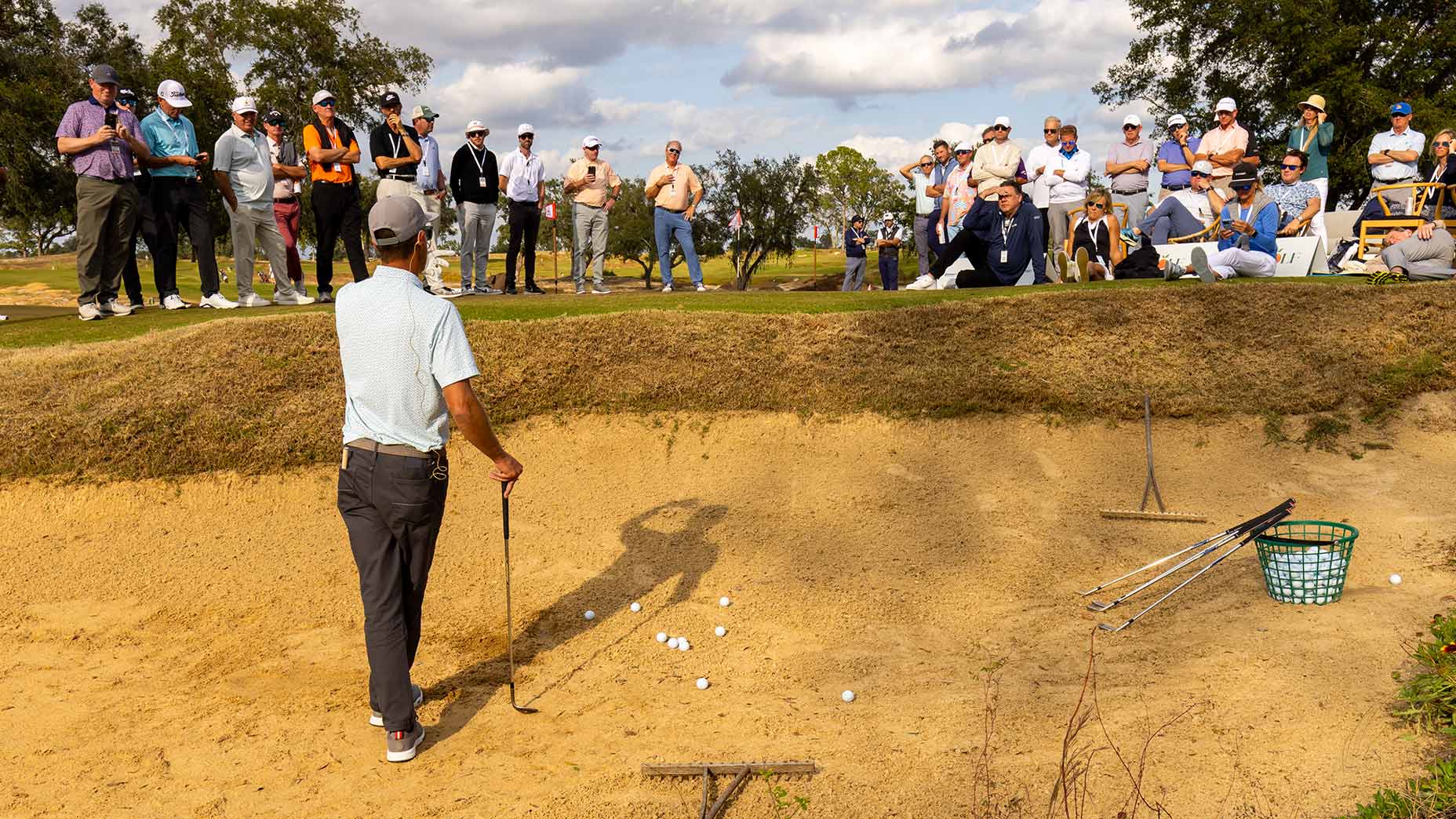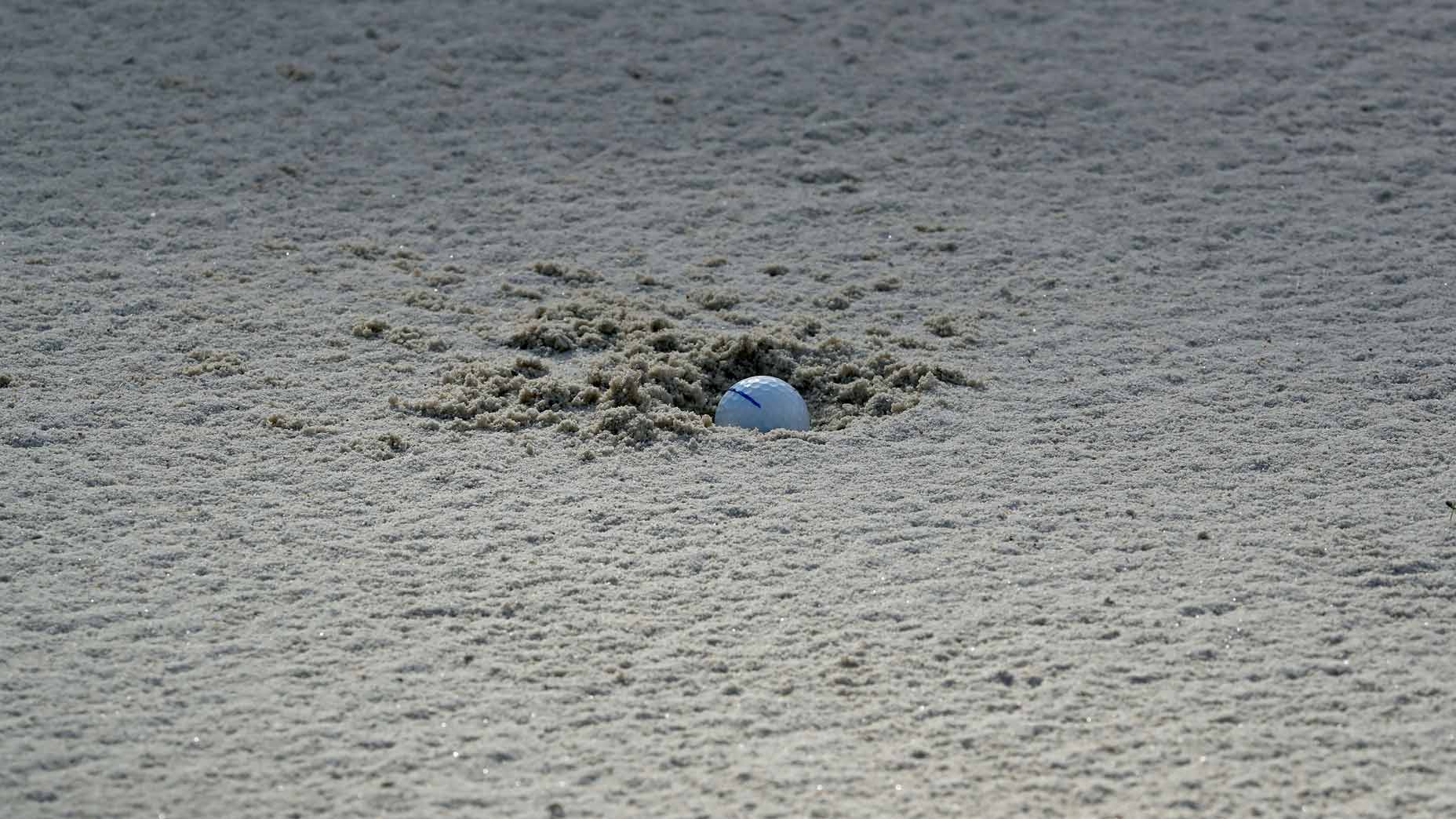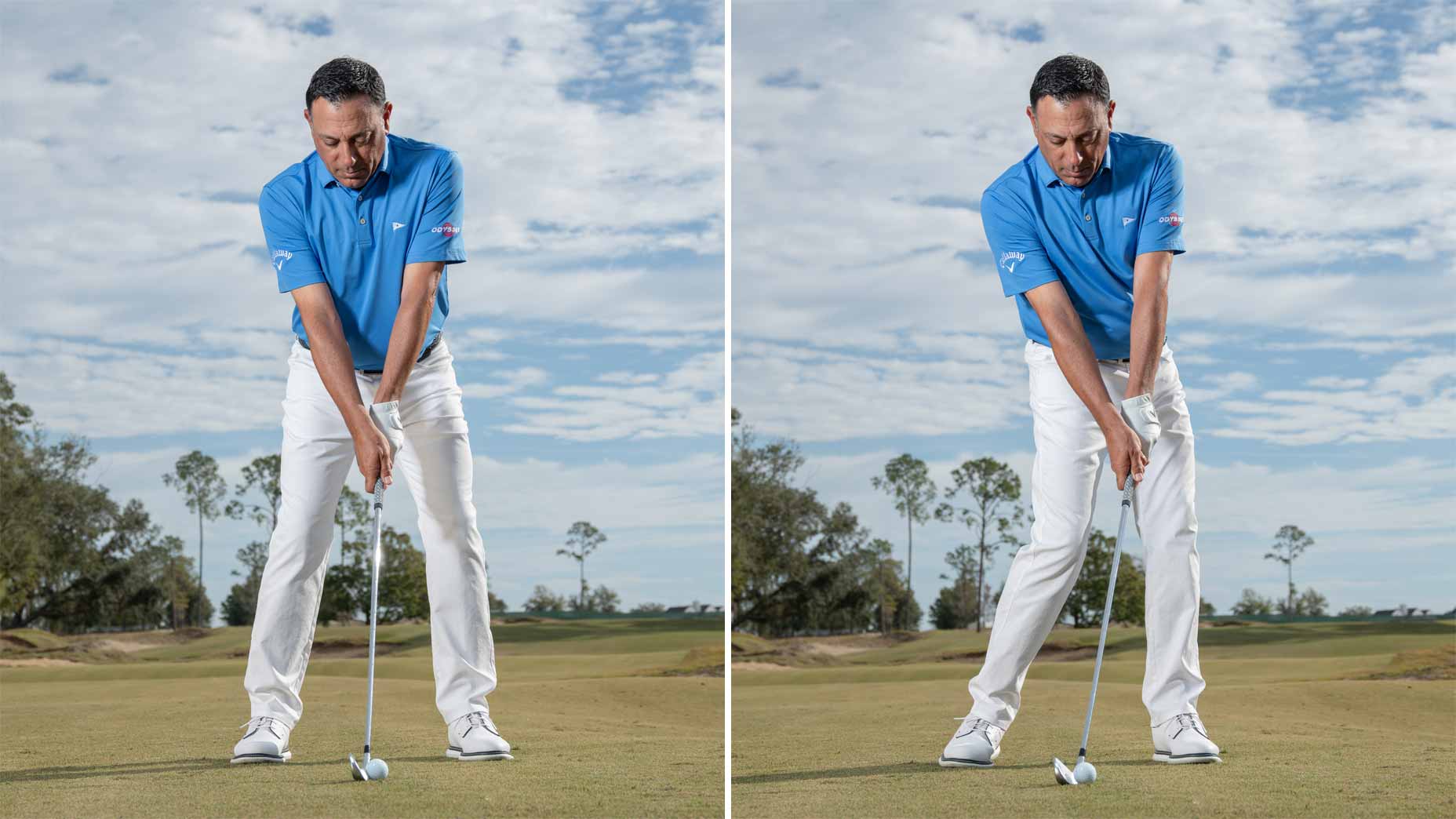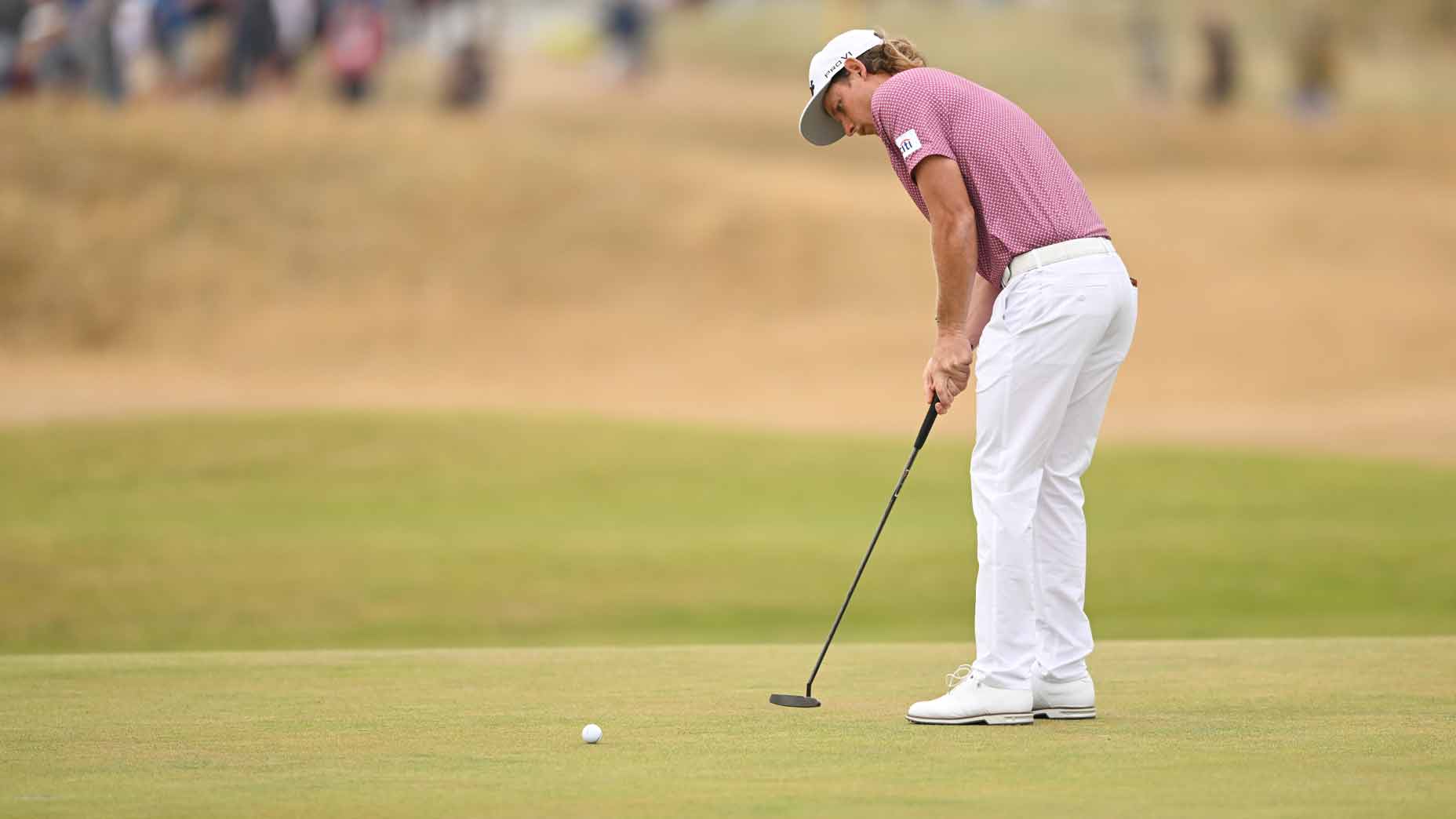Let’s start with the facts: I learned way more than a measly 10 things at our Top 100 Teachers Summit at Cabot Citrus Farms in Brooksville, Fla., earlier this week. But I can’t give away those secrets all at once.
GOLF’s annual Top 100 Teachers retreat always produces a treasure trove of instruction goodies, as the best minds in the game gather for a couple of days of camaraderie, networking, workshopping and education. It’s also a time for us — GOLF.com and GOLF Magazine — to collect a ton of content to use for the upcoming year.
My job was simple. I pulled aside dozens of teachers to get helpful tips for recreational players, which I plan to write about much more when the calendar turns to 2025. But with the summit still fresh in my mind, some tips are, too. Here are 10 quick-hitters, with brief marching orders for each (because some of them we’ll go even deeper on in the months ahead).
Play from the tees pros would. Kind of
Amateurs rarely play from the correct tees. Usually it’s too far back, and we’ve written before about the joys of teeing it forward, but what should the correct yardage be for you? Tom Stickney of Johnathan’s Landing Club in Jupiter, Fla., says that’s easy: play from the same tees that allow you to hit the same clubs the pros would.
“Enjoy yourself. It’s hard enough as it is. If they can’t reach all of the par-4s in regulation and at least one of the par-5s in two, they are on the wrong tees,” Stickney says. “You want to be able to hit in what a pro might hit in on that particular hole. So if a pro is going to hit a wedge, they might do it from 160 and you hit wedge from 80, but then you need to be up at the tees where you can then hit wedge.”
Teachers are still learning, too
Parker McLachlin, a.k.a. The Short Game Chef, put on a bunker clinic (literally) on Tuesday, taking questions and firing shot after shot from a deep bunker to different pins — even diabolical short-sided ones — with ease. He’s magic with a wedge in his hands, and it was cool to see the top 1 percent of teachers in the game engaged, asking questions and still trying to get better. (Use the code GOLF50 to get $50 off a subscription from The Short Game Chef to gain access to more short-game tips. Sign up here. Offer ends Jan. 10, 2025.)
Remember why you’re out there
How do you fix a round gone bad? Erika Larkin says it’s all about your mindset. In short, she teaches playing with joy.
“You can’t play well if it’s coming from a place of fear,” Larkin says. “So you need to realize that you get to hit this next shot, you get to play golf today — you frame it differently. So if you are in a place of, ‘Oh no, everybody is watching and this is going to be a horrible moment,’ instead think, ‘I get to show what I have been practicing, I have a chance to do something amazing, I get to hit this shot right now and I get to be [at this course] today. How bad is life? How bad can it be?’ So you have to spin it. It’s normal to feel nervous sometimes. If you are really not playing well it’s hard to truly fix all the mechanics on the golf course, but you can try to fix the way you are feeling.”
There’s 1 club you need to splurge on
Looking to splurge on just one part of your bag next season? Joe Hallett says to get fit for a driver that will help you launch the ball into the air properly and assist in minimizing any curve in your ball flight.
Don’t make this egregious etiquette mistake
There are lots of etiquette mistakes made on the golf course, but Joe Plecker might have had the most unique etiquette gripe: don’t have competing music playing in your group. Why? It’s just annoying. And loud. He’s got a point.
Tight fairway? Do this
Grip down, Hallett says.
“Gripping the driver down all the way to the bottom of the grip on a short-par 4, it’s amazing how straight you can hit the ball,” Hallett says. “The swing gets shorter, the tempo is better and the ball just takes kind of that mid-trajectory flight.”
GOLF’s ultimate holiday gift guide: 45 can’t-miss editor’s picksBy: Jessica Marksbury
An easy drill to hit more greens
Struggling with your short irons, or from about 150 yards or so? You might simply be hitting the wrong club. Adam Smith suggests taking three clubs out to the 150-yard mark — like a 7-, 8- and 9-iron, for example — and hitting balls with each. He says you’d be surprised how often players don’t know their proper yardages and hit the wrong club to begin with. This simple test will help.
Don’t worry about trying to get more consistent
Jason Sutton does not like when golfers say they want to get more consistent. Why?
“There is no consistency in golf; it’s too broad of a term,” he says. “If you have to define consistency, if I had to, I would say trying to get your bad shots and your good shots closer together. Trying to get your dispersion or shot pattern closer. But I hate that. I like the word repeatability and functionality. Those two things make more sense.”
Sutton says he’d define repeatability as someone’s ability to repeat a pattern of their golf swing more often, which would make your dispersion tighter. As for functionality, he says that’s basically putting all the pieces together from a technical standpoint to match up with what you are trying to do as a goal.
Do these things and your scores will get better, but just don’t say that dreaded word consistency.
What’s one club amateurs should ditch?
A 3-wood, say lots of teachers.
Golf isn’t that complicated, so don’t overthink it
The best tip Hallett’s ever received? It came years ago in his playing days when he had the chance to tee it up alongside World Golf Hall of Fame member Paul Runyan. Hallett was reading a long, big-breaking downhill putt when Runyan walked by and quipped: “It’s not a hard putt, sonny, it’s just a long one.”
“And all of a sudden it just reframed your mind,” Hallett says. “It’s just a putt, just a longer putt, but we’re always like, this is so complicated.”











